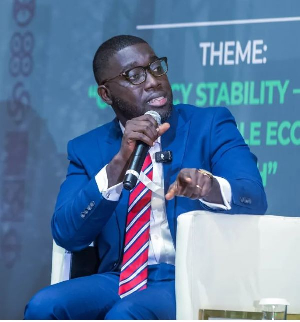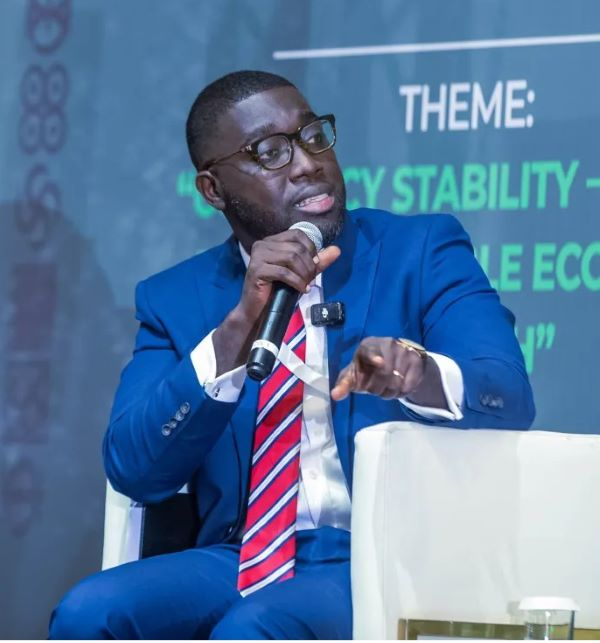 Maxwell Asare is the Director of Multinational and Local Corporate at Fidelity Bank
Maxwell Asare is the Director of Multinational and Local Corporate at Fidelity Bank
Domestic banks have the financial muscle to fund major energy sector projects if issues of transparency, governance and cash flow credibility are addressed, the Director of Multinational and Local Corporate at Fidelity Bank, Maxwell Asare, has stated.
Speaking at the 14th Ghana Economic Forum (GEF) in Accra, Asare noted that while financial institutions possess the capability to support large-scale energy investments, securing new funding depends largely on clearing existing legacy debts and establishing a robust framework for revenue management and repayment.
“Before we can attract new investment into the energy sector, we must first tackle the legacy debt. The existing debts can be structured into a special purpose vehicle (SPV) to issue bonds, which could be listed on the stock exchange to immediately settle those debts,” he explained.
According to him, the financial sector has sufficient capacity – especially when supported by guarantees from development finance institutions (DFIs) – to finance energy projects. However, he emphasised that “no financial institution will commit funds without transparency, credibility of cash flow and good corporate governance”.
Asare further cautioned that the frequent policy inconsistencies and loan defaults following political transitions have weakened investor confidence. He therefore urged policymakers and power sector managers to ensure continuity and transparency in sector management to restore trust and unlock local funding.
“Fidelity Bank is ready and willing to invest in the energy sector, but only when these fundamental conditions are met,” he said, stressing that credibility and accountability must underpin government’s approach if the sector is to move to the next level.
The Fidelity Bank executive also proposed that government should consider using an SPV model to separate historical debts from operational revenues, allowing tariffs and taxes to flow directly into production and distribution rather than servicing old obligations.
Other panelists at the session – held under the theme “Financing the Future: Tackling Legacy Debt and Building a Resilient Energy Economy” – echoed the call for transparency and fiscal discipline in managing energy sector finances.
Partner at KPMG Ghana, Reindolf Annor, advocated the implementation of high-impact, low-cost measures to tackle the debt burden. He also criticised inconsistent application of the Energy Sector Levies Act, 2015 (Act 899), noting that revenues meant to retire sector debts have not been used for their intended purpose.
“Accountability for the funds collected must be prioritised, and the performance of sector entities must be monitored to build trust with financiers,” Annor stated.
The Minister for Energy and Green Transition, John Abdulai Jinapor, recently revealed that Ghana’s energy sector debt has reached GH₵80billion, with the Electricity Company of Ghana (ECG) accounting for more than GH₵60billion. The Finance Minister, Dr Cassiel Ato Forson, has also warned that this figure could rise to GH₵126billion by 2027 if urgent reforms are not implemented.
Meanwhile, Executive Director-Africa Centre for Energy Policy (ACEP) Benjamin Boakye disclosed that government is projected to spend about GH₵30billion on power subsidies in the medium-term – an amount comparable to expenditure on key social infrastructure projects such as schools and hospitals.
He described this as unsustainable, warning that failure to address the sector’s inefficiencies will continue to divert resources away from critical developmental priorities.
All you need to know about Ghana’s new vehicle number plates |BizTech:
